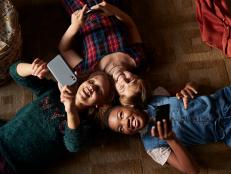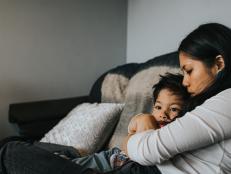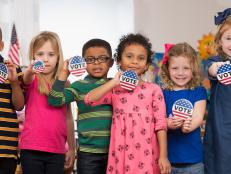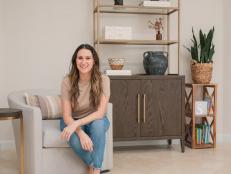Parenting Win of the Week: Just a Little Bit More Sustainable
Expert tips for leading a healthier lifestyle and improving our future.


Elena Medoks
Climate change. Sustainability. Global Warming. Save the Planet. I am sure you’ve heard all of this, and like me, you probably do care what happens to the environment your kids grow up in. I am also well aware that you likely have 10,000 other things on your plate and as much as you want it to be top of mind, sometimes convenience is.
Would you believe that is also the case for Bri Warner? Don’t get me wrong, Bri is the ultimate when it comes to advocating for sustainability. She is the CEO of Atlantic Sea Farms, a company that sells various (delicious!) kelp products. The kelp isn’t just packed with nutrients and versatile for eating, it actually helps to clean up the oceans and make it a more viable environment for the fishing community.

Courtesy of Bri Warner
What she does makes a huge impact. She’s also a mom to two kids, so she gets that there are times when the reality is, you have to make decisions for what’s necessary in the moment (like buying the pre-cut vegetables when you don’t have time to prep and then cook a healthy dinner).
So, knowing that she "gets it," we talked about some realistic things we as parents can do (and things that make sense for our kids) to help better our planet and lead a more sustainable lifestyle. She knows that nobody is perfect, so don’t sweat if you can’t do all of this all the time.
Where is the biggest place we can make a difference?
Where we can make the biggest difference is around what we consume. Our food system is unfortunately set up in a way that makes farmers poor. And you can usually find better prices on food that isn’t good for you. But the biggest way to make a difference is to make more conscious decisions about the food we buy. Food that is sourced well. What does that mean? Having an idea of where it is from and how it’s grown.
How do we do that?
If you don’t have a ton of time when you are in the grocery store to read through everything, I’d start by looking at certifications. As much as they aren’t perfect, and I don’t always love them as a producer, they do give some guidance. Things like organic, fair trade, B-corp, gives you some idea that the brand is trying to make the right decisions about sourcing your food. So in that sense, these symbols make it easy to quickly narrow down.
As much as I hate certifications as a producer, they do hold up to some rigor. Fish with MSC, or organic certifications, or fair trade — look for these labels.
If you have no time and you are just trying to make your way, you can look for B-Corp, companies trying to make the right decisions about sourcing your food. Look for these symbols that can make the decisions a bit easier.
If brands are talking about their sourcing and sharing their story or taking the time to show you the faces of the people who grow your food, that’s usually a sign that they are more forward thinking on food issues.
What else can I be doing?
Just like voting helps you get your voice heard (and you should look at your candidate's stance on environmental issues and food), letting your retailers know what brands you want to see and what you want to buy can actually make a difference.
Grocery stores are often taking the highest margin on the stuff that’s best for you (broken, right?). Have these conversations with your retailers and ask them how they price things. Ask for accountability on the products you want to buy.
How to have these conversations with our kids
This is the world they will grow up in, so it’s important to talk to them about their food. Discuss where it comes from and even if you don’t know the answers, you can research together.
How is what they are doing impacting the environment? Once they see you talking about it and trying, they’ll start incorporating it into their daily lives.
Resources
There is a great resource called the Environmental Working Group — really amazing work on educating customers on what they eat, what they put on their face, what they clean with, and a whole lot more. Their app has a scanner function, so you can scan the product and find out more about what it's rated.
For seafood, she recommends the My World of Seafood app by the Marine Stewardship Council.
YOU MIGHT ALSO LIKE:















